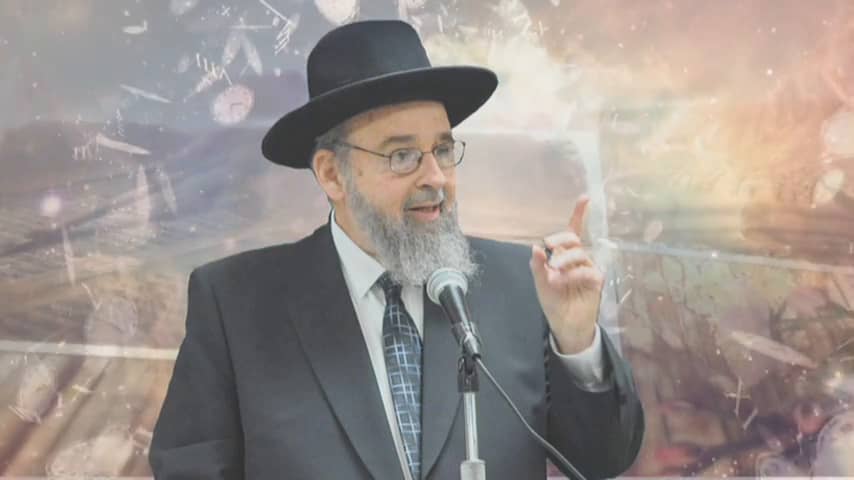“And to Yosef was born two children prior to the onset of the famine…” (41:50) Since the Torah emphasizes that Yosef’s two children were born prior to the onset of the famine, the Talmud derives that one must abstain from conjugal relations during a time of famine.1 The Baalei Hatosfos raise the following difficulty: In another section of the Talmud, we are taught that Levi’s daughter, Yocheved was born as Levi entered Egypt, which occurred at the conclusion to the second year of the famine. 2 Therefore, it can be deduced that Levi had conjugal relations during the famine. Why was this permitted?
The answer given by the Baalei Hatosfos is that abstinence during a time of famine is not a halachic requirement, rather a suggestion for someone who wishes to conduct himself with an extra measure of piety.3 The Ohr HaChaim finds it problematic to accept that while Yosef was willing to conduct himself with this extra measure of piety, Levi, who was described by Moshe as the personification of “chasidus” – piety, was not.4
The Mizrachi offers his own answer to the Ba’alei Hatosfos’ question. He suggests that one who has not fulfilled the mitzva of procreation is not required to abstain. Therefore, Levi, who did not have a daughter was not bound by this restriction.5 This answer requires further explanation, for Yosef himself had only sons, and the accepted halachic opinion is that the mitzva of procreation is fulfilled only when a person has one son and one daughter. According to the Mizrachi, we would be forced to assume that Yosef followed the unaccepted opinion that having two sons fulfills the obligation. Furthermore, the Talmudic exegesis itself appears to contradict the Mizrachi. The Talmud derives that since the Torah emphasizes that Yosef’s sons were born prior to the famine, the message being conveyed is that his children could only be born then. If Yosef would have waited until the famine began, he would have been restricted even though he had not fulfilled his obligation of procreation.
To begin solving this perplexity, we must first understand why it is necessary to abstain from conjugal relations during a time when there is distress in the world. It would appear that the reason is as follows: When we see people in distress, we must empathize with them. Abstinence is the manner in which we show empathy; we do not indulge ourselves in pleasure while others are in distress. Logic dictates that this behavior is required only of someone who is otherwise not subject to the distress of his brethren; thus, there is the need to empathize. However, for someone who is subject to the same distress as his brethren, there is no need for abstinence. For this person to abstain would be an extra measure of piety, unless he had not yet fulfilled his mizva of procreation.
Yosef did not feel the pressure of the famine, for he had taken the necessary precautions to alleviate any discomfort which might occur during the years of famine. Therefore, Yosef was required to empathize with the plight of his brethren. Levi and the rest of his brothers had not taken these precautions, for they were unaware of the fact that there would be a famine.6 Consequently, they were suffering along with everyone else.7 Levi, who was already subject to the suffering, was not obligated to abstain, for empathy is not required of those who already feel the distress of the situation. To abstain in these circumstances would be an extra measure of piety. However, Levi was not permitted to conduct himself as such, for he had not yet fulfilled his obligation of procreation.
1.Taanis 11a 2.Sotah 12a 3.Taanis ibid 4.41:50 5.Mizrachi 41:50 6.41:49 7.See Rashi 41:1 According to his second explanation, Yaakov did not have food the first time he sent his sons to Egypt, and even according to the first explanation he only had food at that time.


